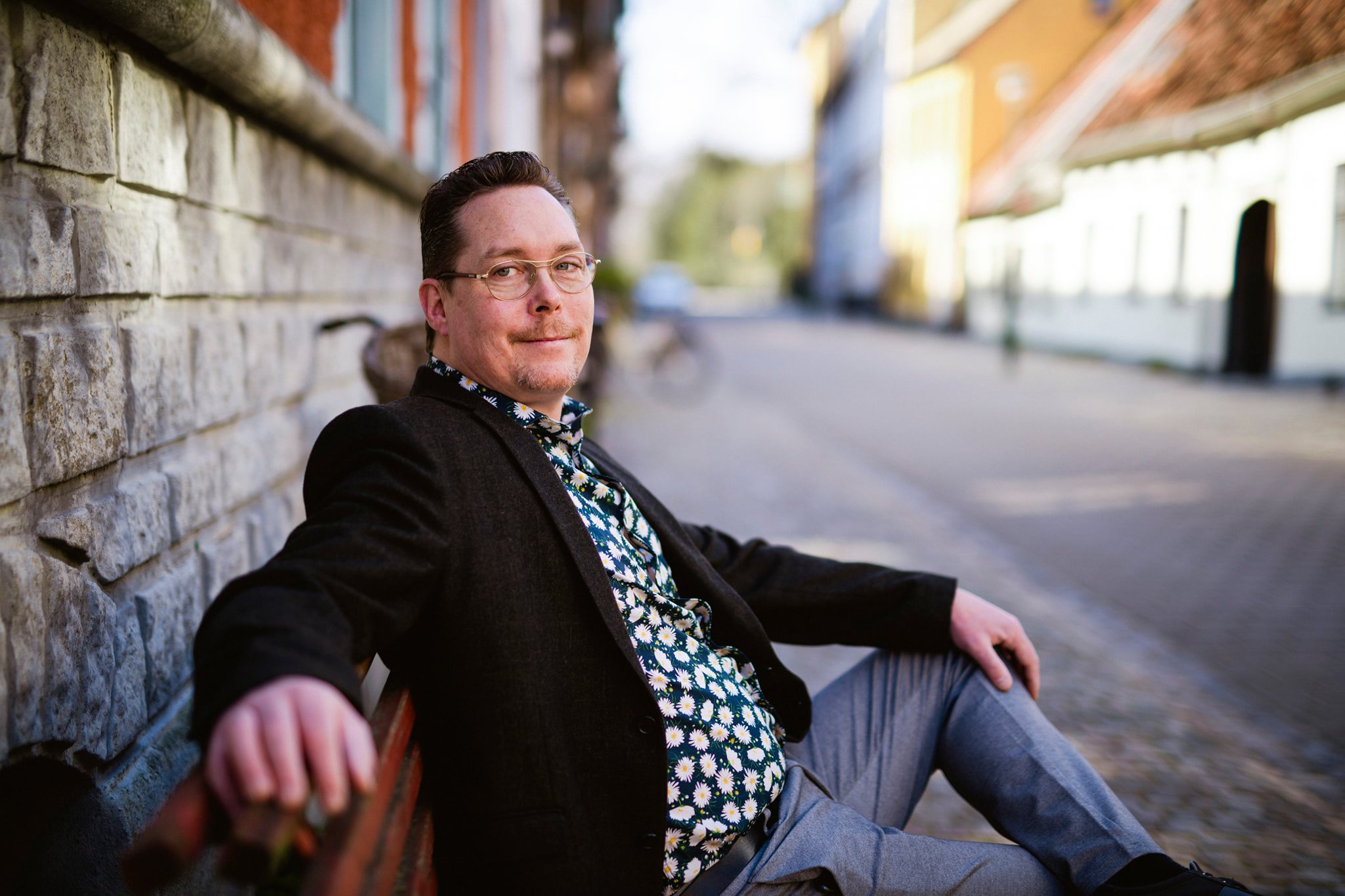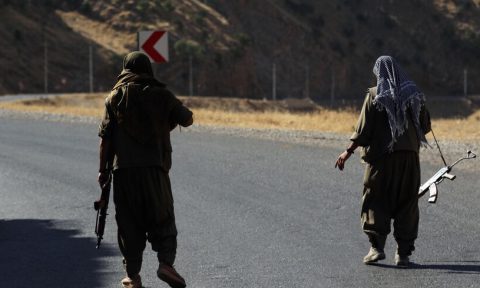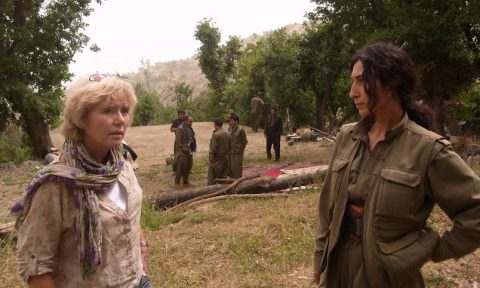Thousands of children are reportedly serving as fighters in the Kurdistan Workers’ Party (PKK) conflicts in Turkey, Syria, Iran, Iraq and the Kurdistan Region. These boys and girls, some said to be as young as 8 years old, may fight on the front lines, participate in suicide missions, and act as spies, messengers, or lookouts. Many are abducted or recruited by force, while others join out of desperation, believing that the PKK would offer their best chance for their future. The PKK is classified as a “terrorist organization” by the United States and the European Union. Many of the autonomous administration’s leaders in the Syrian Kurdistan (Rojava), including Mazloum Abdi, are loyal to and/or part of the PKK.
In 2019, Mazloum Abdi, the leader of the Syrian Democratic Forces (SDF) in Rojava and Syria signed a treaty with Virginia Gamba, the Special Representative of the United Nations for Children, not to recruit children and to release them from the PKK camps. Despite the signed treaty, abductions have increased systematically in the recent times. According to the news outlet Ark News, based in Rojava, 33 children have been kidnapped by forces affiliated to the People’s Defense Forces (YPG) in the recent weeks.
The YPG has long been known to recruit boys and girls aged 10-16 from vulnerable families in displacement camps, and send them to training camps without telling their parents the whereabouts of their children. The increasing systematic abductions should be an international concern. In the 2018, a report on ‘Children in Armed Conflict’ by the UN, revealed that hundreds of children had been recruited by the PKK/YPG groups – the numbers during 2021 seem to be even more alarming!
There are no official statistics on the children who have been forcibly recruited in western Kurdistan. The UN said that between January and July 2020, 51 girls between the ages of 13 and 17, as well as 18 boys were in the process of being released from PKK training camps for children.
The use of child soldiers is a grave human rights violation. Accusing a faction of exploiting this particularly vulnerable group is an effective way of demonizing both political and military opponents. But unfortunately there is no doubt that minors are fighting in the ranks of the YPG, a Syrian armed force that controls most of the the Syrian Kurdish territories and plays the key role in the US-backed SDF.
The UN’s 2018 report about child soldiers within SDF/YPG/PKK in Syria and Rojava stated that: there have been 398 verified cases of minors in such roles — including the manning of checkpoints far from active frontlines — between 2013 and 2018, with a significant increase since 2017. To put the YPG’s policy into context, it is important to note that the PKK has a long history of kidnapping and use of child soldiers. YPG/SDF does appear to be working toward the implementation of Geneva Call’s Deed of Commitment for the Protection of Children from the Effects of Armed Conflict, but the situation on the ground tells another story.
Crisis Group survey of PKK casualties from 2015 to 2019 shows the recruitment of child soldiers in the party and its branches has increased. Meanwhile, it demonstrates that the PKK through its branch, PJAK, has resorted to deceiving and abducting Iranian Kurdish children and adolescents to supply its frontlines, and according to the “Crisis Group”, the number of Iranian Kurdish members killed in the PKK has increased significantly.
These children are victims when the AANES cannot or will not ensure adequate funding for schools and health clinics, resulting in very low school participation rates, and other weak social indicators. They are displaced in huge numbers and live in camps that are desperate breeding grounds for alcohol and drug abuse, domestic and sexual abuse. Their eyes have seen a lifetime of violence in the few short years of their lives. No matter their role, YPG (or their affiliates) child soldiers are exposed to acute levels of violence – as witnesses, direct victims and as forced participants. Some are injured and have to live with disabilities for the rest of their lives.
Girls are also recruited and used by PKK-affiliated groups. They have vulnerabilities unique to their gender and place in society, and suffer specific consequences including, but not limited to, rape and sexual violence, pregnancy and pregnancy-related complications, stigma and rejection by families and communities. Sometimes YPG claims that they are taking these children to protect them against their own families. But even if children are fleeing domestic violence or poverty, the YPG is not protecting them by recruiting them into their forces.
It is time for the UN, coalition member states and other international actors to put political and economic pressure on the PYD, AANES, YPG, and SDF to stop using children for political and military purposes.
Countries such as France and the United States, which are important pillars of the SDF and AANES, should stop all political and military support until all the children will be released and returned to their parents. The fact that the Western world’s allies kidnap and use children must, of course, be totally unacceptable!
It should be noted that The Child Protection Office affiliated with the Kurdish-led Autonomous Administration in Manbij started last summer issuing work cards for children ages 10 to 18, in a move it claims aims to avoid forced conscription by the Syrian Democratic Forces. But areas in western Kurdistan, Rojava, seem to have been left behind.











Sure, Kurdish women should support Erdogan, a good ally of the United States.